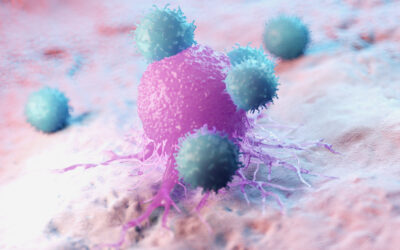Latest News

Dr. Johannes Coy on the Future of Sweetness and Health
Top Magazin Frankfurt recently interviewed our founder, Dr. Johannes Coy, about how his research into metabolism and the enzyme TKTL1 reshaped his understanding of sugar. He explains how conventional sugar can burden the body and why functional sugars such as tagatose...
Dr. Johannes Coy on the Future of Sweetness and Health
In Top Magazin Frankfurt, Dr. Johannes Coy shares how his TKTL1 research reshaped his understanding of sugar, leading to functional alternatives like tagatose, galactose, and mannose. His vision: sweets that taste indulgent while supporting real metabolic health.
Galactose in Parenteral Nutrition: A Metabolic Rationale Worth Investigating
A recent hypothesis paper suggests that adding galactose to parenteral (IV) nutrition—currently based almost entirely on glucose—may offer metabolic benefits for premature infants. The authors highlight that existing IV formulations don’t mirror the natural balance of glucose and galactose found in human milk, and propose that a more milk-like carbohydrate profile could better support early development.
Allulose Shows Low Cariogenic Potential in New Oral Microbiome Study
A recent study published in Frontiers in Cellular and Infection Microbiology examined how different sugars influence the development of dental biofilms and microbial balance in the mouth. The research focused particularly on Allulose, a rare sugar, and assessed its potential to promote or prevent conditions associated with tooth decay.
How Common Sugars in Drinks Accelerate Colorectal Cancer
A recent study published in Nature Metabolism (September 2025) has provided compelling new evidence that the type and combination of sugars commonly found in sugar-sweetened beverages (SSBs) can accelerate the progression and spread of colorectal cancer (CRC).
Ultra-Processed Foods Linked to Higher Lung Cancer Risk, Study Finds
A major new study suggests that diets high in ultra-processed foods could significantly increase the risk of lung cancer – even after accounting for smoking and other lifestyle factors.
PDGFB and Lung Cancer: When Sugar Metabolism Fuels Tumor Growth
A new study shows how PDGFB accelerates lung cancer by driving the Warburg effect, where cells switch from healthy combustion to fermentation of glucose — a process fueled by the TKTL1 gene, discovered by Dr. Johannes Coy. The Dr. Coy Principle, built on five nutritional pillars including funtional sugars (galactose, mannose, tagatose) that cancer cells cannot exploit, offers a science-based way to counteract this metabolic shift.
Intelligent Sugars in Action: Galactose’s Role in Enhancing Anti-Tumour T Cell Responses
In a groundbreaking Nature Cell Biology study published on 8 August 2025, researchers uncovered a striking new role for diet-derived galactose: it can reprogram liver metabolism, boosting antitumour immune responses by preventing CD8⁺ T cell exhaustion.
GLP-1 Breakthroughs and Dr. Coy’s Sugars Are Two Sides of the Same Coin
As new research shows GLP-1 drugs may slow Alzheimer’s progression by improving sugar metabolism and reducing inflammation, it’s clear that brain health starts with metabolic health. But while GLP-1 receptor agonists treat existing imbalances, Dr. Coy’s sugars—like galactose, isomaltulose, and tagatose—prevent them by supporting stable blood sugar and lowering dietary inflammation.
Sugary Drinks and Chronic Disease: What New Global Research Tells Us
Sugar-sweetened beverages (SSBs)—like sodas, juice drinks, and sweetened teas—are not just contributing to empty calories, but are actively fuelling chronic disease on a global scale.
Could Sugar Help in the Fight Against Cancer? A Look at the Surprising Role of Mannose
Sugar and cancer aren’t always enemies. New research shows that rare sugars like mannose may actually support cancer therapy by targeting tumour metabolism – offering a smarter, science-backed approach to nutrition in oncology.
Rewriting Cancer Metabolism: Dr Joachim Stein on TKTL1 and the Future of Integrative Care
Today, we are pleased to be joined by Dr. Joachim Stein, a highly respected specialist in gynecology and obstetrics, whose career spans over two decades of dedicated medical practice and research.
New Insights into Metabolic Health and Lung Cancer: Rethinking Our Sugar Choices
A major new study has uncovered distinct metabolic markers linked to lung cancer in non-smokers, challenging the long-held belief that external carcinogens are the primary cause of the disease. Research published in Nature suggests that altered sugar metabolism and mitochondrial dysfunction are key contributors to cancer growth.
Tagatose: A Tooth-Friendly Sugar?
Tooth decay affects 2.3 billion people worldwide, with sugar being a major cause. While cutting sugar completely isn’t realistic—or healthy—studies show tagatose is a sweet, tooth-friendly alternative that supports dental health.
Ribose: Help Your Muscles Increase Power Output
Ribose, a naturally occurring sugar in the body and a key building block of ATP, helps boost muscle cell energy. Supplementing with ribose can enhance power output and improve exercise capacity, supporting better performance and recovery.
Expanding the Nutritional Perspective: Beyond the Ketogenic Diet in Modulating the Tumour Microenvironment
The recent publication of The Clinical Research Framework Proposal for Ketogenic Metabolic Therapy in Glioblastoma marks a key step forward in using metabolic interventions for cancer treatment. Although the ketogenic diet shows promise in targeting the metabolic weaknesses of glioblastoma, exploring wider nutritional strategies could offer more ways to influence the tumour microenvironment.
Trehalose: Boost Your Cognitive Clarity
Trehalose has been used for decades by different plants and insects to protect proteins in their cells, especially in extreme environmental conditions. Recent studies show we can use trehalose for improving cognitive function and clarity.
















